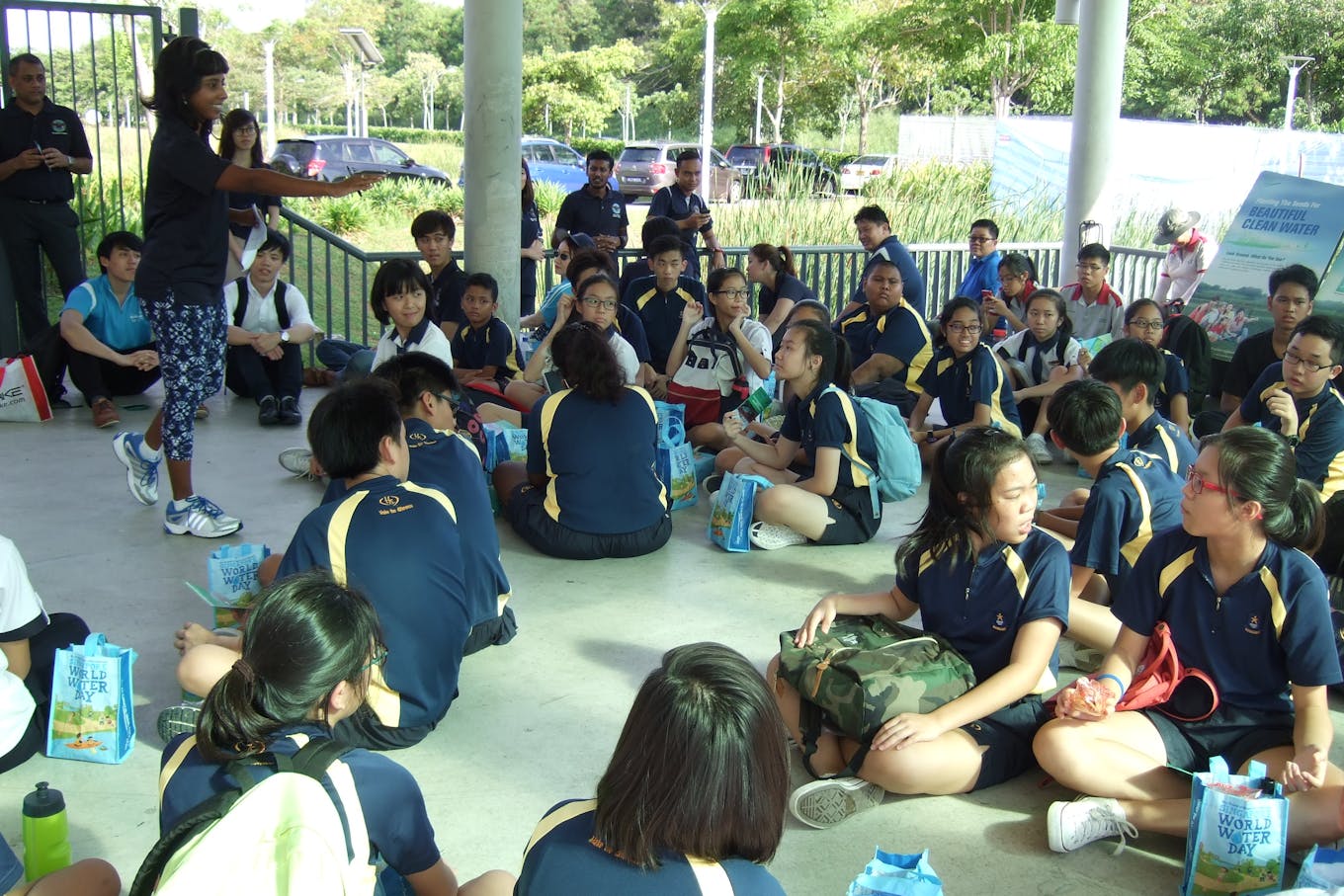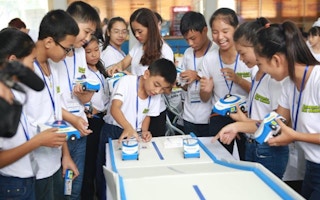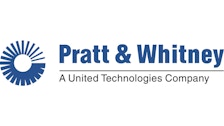As climate change and sustainable development edge into the mainstream, no demographic is more influenced and affected by today’s environmental and social challenges than young people.
Home to some 700 million youth, Asia Pacific has no shortage of potential to involve young people in shaping a more sustainable world. So local and multinational companies in the region have stepped up their efforts to inspire, invest in and equip a new generation with skills in sustainability as young people take their first steps on the career ladder.
Eco-Business asked five companies—Japanese electronics giant Panasonic, software firm Autodesk, banking group Citigroup, pulp and paper firm Asia Pacific Resources International Limited (APRIL) and aircraft engine manufacturer Pratt & Whitney—about their initiatives to get young people interested in sustainability and engaged with programmes that tackle real-world environmental and social problems.
Panasonic: Teaching future customers
Eight years ago, Panasonic set out to provide environmental education to two million children globally as part of its Green Plan 2018. By March 2017, under an umbrella scheme called Panasonic Kids School, the corporation had reached approximately 2.8 million children through various educational programmes around the world.
These programmes include the Eco Picture Diary Contest, which aims to raise children’s interest in environmental issues, and the Global Eco-Learning Program, which conducts activities such as battery-creation and tree-planting workshops for students.
In Asia, lessons on dry cells and neck lights have been held, with new workshops on solar lamps to be expanded to Latin America. International in scope, the corporation’s eco-learning programme is tailored to the initiatives of each region while using common teaching tools that integrate Panasonic’s technologies.
“
We believe that by practicing environmental education for children who will become purchasers in the future, it will improve the image of the Panasonic brand.
Ryuji Shimono, unit leader, environmental management department, Panasonic
On the company’s motivation for engaging with the young, Ryuji Shimono, unit leader in the environmental management department, quality and environment division at Panasonic, says: “We believe that by practicing environmental education for children who will become purchasers in the future, it will improve the image of the Panasonic brand, and expand our fan base for environmentally-friendly products.”
Autodesk: Designing a better world
Realising their potential to influence the world’s makers and the need to support young people at the forefront of new technologies, multinational software corporation Autodesk has made it a priority to encourage sustainable design through education.
With its Autodesk Sustainability Workshop, the company has made sustainability education more accessible to students and educators, providing online resources for those who want to teach and learn about how to design within the limits of the planet.
“Climate change is one of the greatest design challenges of our time, and addressing it is essential to the long-term success of both business and society,” says Jake Layes, director of global market development sustainability at Autodesk. “We see our role as being to inspire and support more people – especially the next generation – to use the power of design to mitigate and adapt to climate change.”
Autodesk offers free videos, tutorials and case studies that help aspiring designers and engineers move towards building sustainable products. One example is their Building Design section, which advises on improving energy efficiency through natural resources and managing water resources in green buildings.
Autodesk says the programme has educated millions on sustainable design, but from May 2018 the sustainability workshop will be integrated with the Autodesk Knowledge Network and Autodesk Design Academy while the company works out how to take the programme forward.
Citigroup: Can youth achieve the SDGs?
Citi Foundation, the philanthropic arm of multinational investment bank Citigroup, partnered with the United Nations Development Program (UNDP) in 2017 to create Youth Co:Lab, a regional youth entrepreneurship initiative paving the way for youth-led solutions to the Sustainable Development Goals (SDGs). Some 1,700 young people participated in its first year, when 140 social enterprises across 11 countries in Asia Pacific were launched and developed.
“Through the Youth Co:Lab programme we are tapping into the entrepreneurial spirit of young people to help them drive the solutions that can help tackle some of the region’s biggest economic and social challenges,” says Brandee McHale, president of the Citi Foundation. She emphasised the company’s belief in the benefits youth bring to society when they thrive in the workforce.
In March 2018, the inaugural Youth Co:Lab Summit recognised five youth-led social enterprises addressing the SDGs in the Regional Social Innovation Challenge. One of the initiatives included Philippines-based Phinix, a textile recycling centre that transforms textile waste into higher value products such as footwear and lifestyle items.
Pratt & Whitney: Not just another MNC
Driven by a common goal to teach children about water conversation, Pratt & Whitney partnered non-profit Waterways Watch Society shortly after a meeting at a World Water Day event in 2013.
Through interactive learning trails at Lorong Halus Wetland as well as assembly talks in schools, the partnership has benefitted students from 26 primary and secondary schools in Singapore. Partnerships such as this allow aircraft engine and auxiliary power unit manufacturer Pratt & Whitney to instil a sustainability mindset in the next generation, and encourage them to promote environmental awareness among their peers.
“[Youths] are the next generation to lead and influence how the environment is managed in the future,” says Jeevita Ravidran, an environment, health and safety engineer at Pratt & Whitney. Her passion for environmental sustainability as a young employee led her to take the lead of the company’s sustainability committee in Singapore.
Ravidran added that the company does not want to be just another multinational, but one that shares a greater sense of responsibility and cares about the environment in which local communities live and work.
Through employees with a passion for the environment such as Jeevita, Pratt & Whitney has built a network of sustainability ‘focals’ or ambassadors, and the company aims to enable their ideas and ambitions to have a positive impact on the company, communities and the environment.
An early initiative to support employees who proactively embark on green projects, the Pratt & Whitney Green Power Grant programme, was launched on Earth Day in 2008. Through grants that fund sustainability initiatives with local non-profit organisations, employees have led more than 75 projects across the globe – and have been supported by nearly US$400,000 in grants from the company. Eligible projects enhance, protect or preserve the environment, or teach others the value in doing so.

Jeevita Ravidran, an environment, health and safety engineer at Pratt & Whitney, teaches kids in Singapore about the value of water conservation. Image: Pratt & Whitney
APRIL: Farming forests without fire
One of Indonesia’s biggest pulp and paper firms, APRIL, works closely with young people in sharing sustainable forestry practices and educating them on preventing fires, a seasonal environmental problem in Sumatra where the company operates.
A supporter of the Global Compact Network Singapore (GCNS), APRIL has hosted participants of the annual Youth Forum for the past two years, allowing youth teams to visit its plantation in Kerinci, Indonesia, and giving them an inside look into their operations.
“Intergenerational equity is an important aspect of sustainability and is about making sure that future generations have the same opportunity as we do today,” explains Lucita Jasmin, director of sustainability and external affairs, APRIL Group.
“A balanced understanding of the environmental, social and economic dimensions of development will help the next generations build on the current momentum and scale up the innovations and solutions that have been initiated. This is why it’s important to inform and engage young people about sustainability, while also listening to them and acknowledging their importance as a stakeholder group,” she says.
The company’s commitment to education, especially in the community where it is based, is reflected in its partnerships with local schools and universities.
APRIL runs the Fascinating World of Forestry educational programme, which encourages students to learn more about the region’s forests and discover how paper can be made sustainably. Another initiative is the Schools Awareness Program, which is part of APRIL’s Fire Free Village initiative in Riau, which lays the foundation for fire awareness in the community and trains future leaders in sustainable development.











